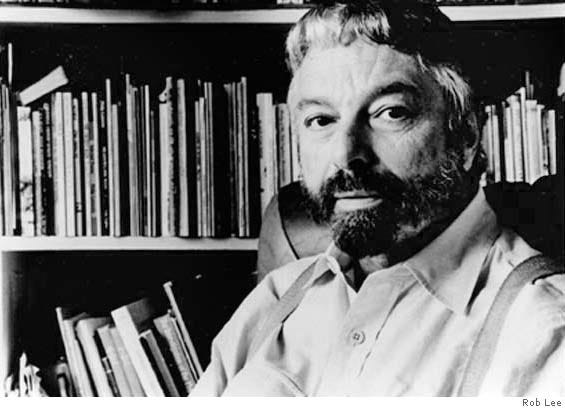Philip Lamantia
Philip Lamantia (1927-2005) was an American poet who is often associated with the Beat Generation, though his work and influence extend well into surrealism and beyond.
Lamantia's poetry is characterized by its ecstatic, visionary qualities, and a profound engagement with mysticism, surrealism, and existential questions. His work stands out for its intense imagery, emotional depth, and exploration of the subconscious, making him a unique voice in American literature.
Early Life and Literary Beginnings
Philip Lamantia was born on October 23, 1927, in San Francisco, California, to Sicilian immigrants. He displayed a talent for poetry from an early age, and his work was published while he was still a teenager. Lamantia's early exposure to surrealism profoundly influenced his development as a poet. He was particularly drawn to the work of André Breton, the founder of Surrealism, whose ideas about accessing deeper realities through the unconscious would become a cornerstone of Lamantia's poetic philosophy.
Surrealism and Early Recognition
In his late teens, Lamantia moved to New York City, where he became directly involved with the Surrealist movement, befriending leading figures such as André Breton. His early poems garnered significant attention, and he was quickly recognized as a prodigious talent within the surrealist community. Lamantia's work from this period is marked by its surreal imagery, dream-like landscapes, and the exploration of themes such as love, death, and the quest for transcendence.
Association with the Beat Generation
Though Lamantia's roots were in surrealism, he became associated with the Beat Generation in the 1950s, largely through his connections with poets like Allen Ginsberg and Jack Kerouac. He participated in the historic Six Gallery reading in San Francisco in 1955, where Ginsberg first read "Howl." Although Lamantia did not read his own work that night, choosing instead to read the work of his late friend John Hoffman, his inclusion in the event solidified his place within the Beat movement.
Exploration of Mysticism and Psychedelics
Lamantia's poetry and thought were deeply influenced by his interest in mysticism, religion, and later, psychedelics. His search for spiritual awakening led him to explore various religious traditions, including Catholicism, Hermeticism, and Native American spirituality. In the 1960s, Lamantia's work began to reflect his experiences with psychedelic substances, which he saw as a means to achieve mystical insights and a deeper connection with the cosmos.
Later Life and Legacy
Throughout his life, Lamantia continued to write and publish poetry, exploring new themes and deepening his engagement with mystical and surreal experiences. His later works maintain the intensity and visionary quality of his earlier poetry, while also reflecting his ongoing spiritual and philosophical explorations.
Philip Lamantia passed away on March 7, 2005, in San Francisco. His legacy is that of a poet who bridged the worlds of surrealism and the Beat Generation, creating a body of work that is deeply personal, richly imaginative, and spiritually profound. Lamantia's poetry remains a testament to the power of the imagination to unlock new realms of experience and understanding, offering readers a glimpse into the ecstatic and infinite possibilities of the human mind.
